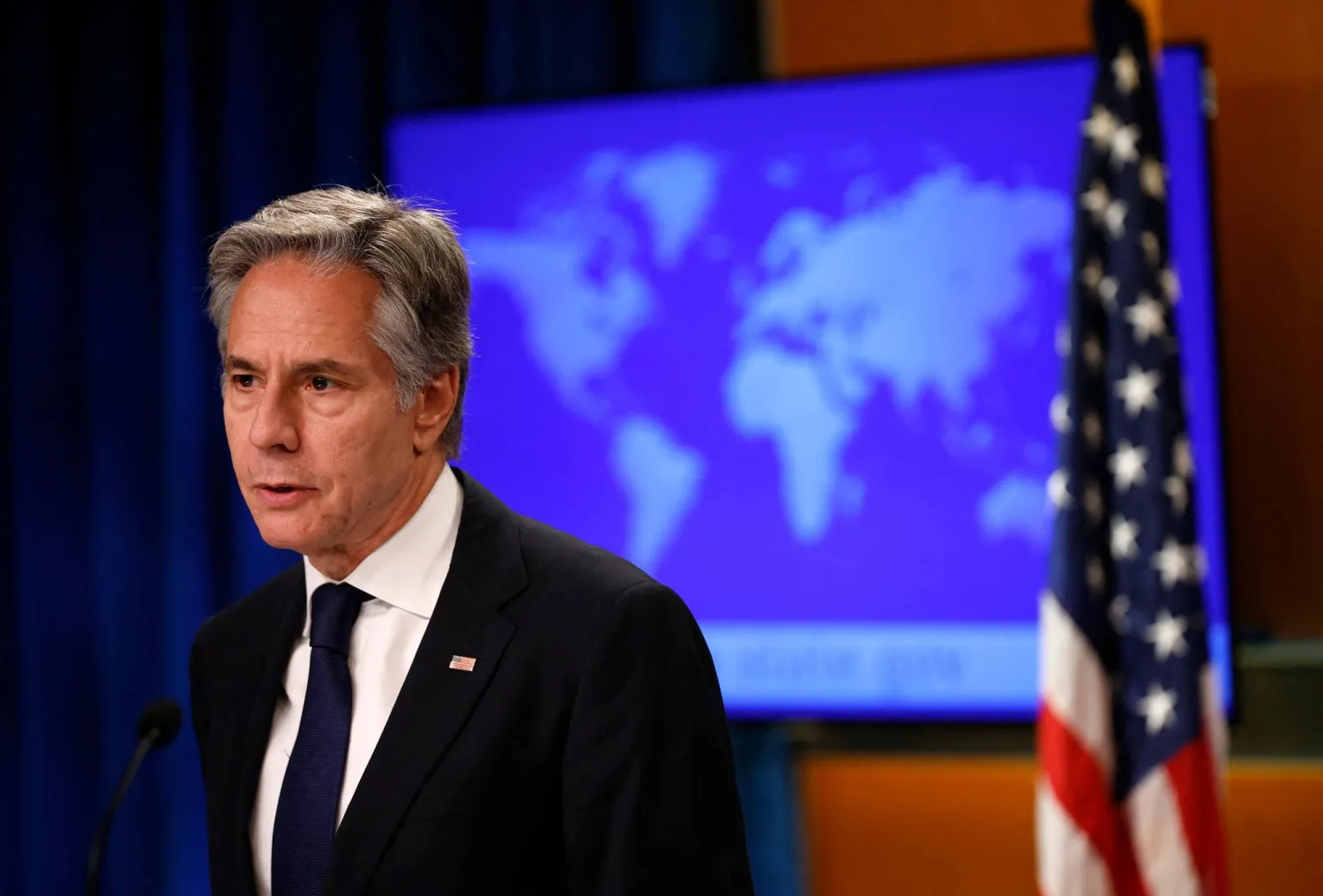The United States Secretary of State Antony Blinken made two separate phone calls on Thursday with his Saudi and Qatari counterparts, the US Department of State said in a statement.
Blinken’s phone talks with Saudi FM Prince Faisal bin Farhan and Qatari Prime Minister and Foreign Minister Sheikh Mohammed bin Abdulrahman Al Thani focused on efforts to end the ongoing conflict in the Middle East, it said.
Blinken Discusses Mideast Conflict with Saudi, Qatari Counterparts

US Secretary of State Antony Blinken delivers a statement on Russian intelligence operations at the US State Department on September 13, 2024 in Washington, DC. Kevin Dietsch/Getty Images/AFP

Blinken Discusses Mideast Conflict with Saudi, Qatari Counterparts

US Secretary of State Antony Blinken delivers a statement on Russian intelligence operations at the US State Department on September 13, 2024 in Washington, DC. Kevin Dietsch/Getty Images/AFP
لم تشترك بعد
انشئ حساباً خاصاً بك لتحصل على أخبار مخصصة لك ولتتمتع بخاصية حفظ المقالات وتتلقى نشراتنا البريدية المتنوعة







